AI’s Impact on HR in 2025: What to Expect
Did you know AI use in work is growing fast, about 40 percent each year? By 2028, the AI market in the U.S. will hit a huge $1 trillion1. Looking to 2025, AI will change how we handle recruitment, keep employees engaged, and manage tasks.
AI is getting better in machine learning, understanding language, and robotics. This means many HR jobs will change to focus more on automation. A report by Pew Research Center says about one-fifth of workers face AI in their jobs1. Gartner also found 76 percent of HR leaders think not using AI soon could hurt their company’s success1.
But AI won’t just replace jobs; it will work with our skills in creativity, empathy, and solving complex problems. We’ll use digital HR tools to boost our abilities, keeping us ahead in a fast-changing world. Goldman Sachs says AI could replace 300 million full-time jobs2, showing the need for ongoing learning and adapting.
Key Takeaways
- The AI market is growing rapidly and could be worth $1 trillion in the U.S. by 20281.
- Approximately 40 percent growth each year indicates significant opportunities in AI applications1.
- AI’s impact on HR includes transforming recruitment, employee engagement, and administrative tasks1.
- AI could replace 300 million full-time jobs, emphasizing the need for continuous adaptation2.
- HR leaders believe that not using AI could negatively affect a company’s success1.
- AI in HR promotes strategic decision-making and operational efficiency1.
Introduction to AI in Human Resources
AI is changing the game in human resources, becoming a key part of the industry. It automates routine tasks, making things more efficient and helping with big decisions. This is all thanks to HR tech3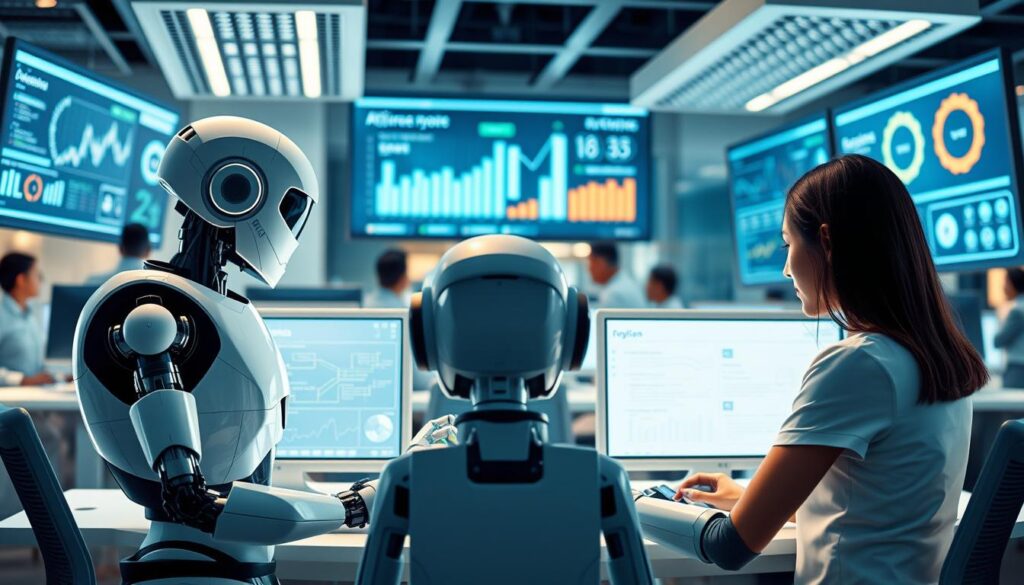
Most HR leaders, 92%, want to use more AI in their work. By 2025, AI could automate up to half of HR tasks4. This means HR pros can spend more time on big-picture stuff and less on day-to-day tasks.
Automated resume screening systems can look through thousands of resumes fast. This cuts down hiring time and makes sure candidates are a good fit for the job4. Already, 73% of HR teams use AI for hiring, making things run smoother3.
AI does more than just help with hiring. It’s key for managing performance, handling payrolls, and sorting out benefits. About 77% of HR teams use AI for payrolls, making it accurate and smooth3. AI also boosts onboarding, which is super important for keeping employees happy and on board, improving retention by 82%3.
But, there are hurdles to overcome. Using AI in HR raises big questions about privacy and its effect on jobs4. Finding the right balance between using AI’s benefits and dealing with its downsides is crucial.
In the end, AI is ushering in a new era for HR. As we dive deeper into AI, from handling day-to-day tasks to managing employees, it’s clear AI is here to stay. It’s not just a trend; it’s a big change shaping the future of HR in 2025.
The Role of AI in Recruitment and Hiring
AI has changed the way we hire, making it faster and better. It uses recruitment automation, AI recruiting tools, and candidate screening AI. This helps companies manage their HR tasks more efficiently.
Automated Resumé Screening
AI is key in screening resumes automatically. It can save recruiters up to 23 hours a week by doing this and checking candidates first5. This lets them work on more important tasks.
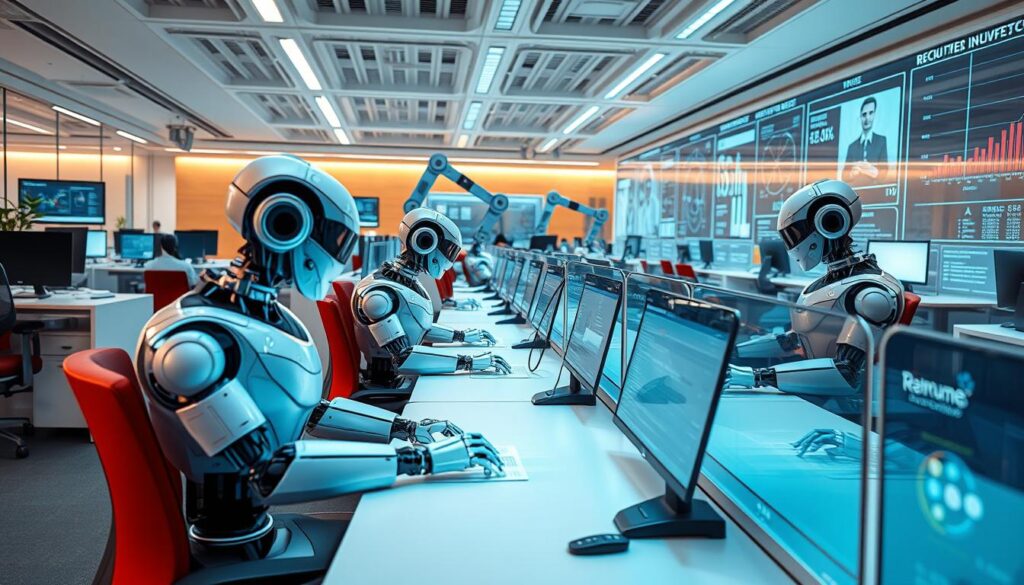
Also, AI can cut costs by up to 70%, mainly by reducing manual work5. This makes hiring faster and more efficient.
Predictive Analytics for Candidate Success
Predictive analytics is another AI feature that helps with recruitment. Companies using AI see a 38% increase in hiring success5. These tools look at lots of data to guess if a candidate will do well in a job. This helps companies make better hiring choices.
Because of this, 87% of companies are happier with AI-powered recruitment tools5.
Algorithmic Candidate Matching
AI uses algorithmic matching to match jobs and candidates very well. On average, AI can look at 300% more candidates than old methods in the same time5. Companies using AI in hiring see a 50% drop in time-to-hire5.
Using AI for screening candidates makes HR more data-driven and efficient. This leads to faster, fairer hiring and helps with diversity and efficiency in the workplace.
How Will AI Impact Human Resources in 2025?
By 2025, AI will change HR in big ways. It will make tasks like recruitment and payroll faster and smarter. Automated systems will answer 60-80% of employee questions on their own, cutting down on busywork6.
AI will make hiring 30% better and cut the time it takes to hire by 25%. This means hiring will be faster and more effective6. Companies using AI for hiring are already seeing great results. They’re using AI to make interview questions and emails, making hiring smoother7. About a quarter of businesses are now using AI for hiring7.
The future of work will be shaped by AI. HR will need to adapt and embrace new ideas. Predictive models will help keep employees happy and on board. For example, these models can reduce turnover by 20-50%6.
AI will also help plan for the future and find skills gaps. It will help spot where we need more training and planning. This means HR will make smarter decisions6. Training will focus on using AI wisely and finding new chances to grow7.
As we approach 2025, businesses need to blend AI with HR systems smoothly. Working together, HR, IT, and data science teams will create AI solutions that meet company goals6. Companies will also need to invest in learning and development to keep up with AI changes.
Deloitte’s survey shows a big jump in using talent mobility tech, from 13% in 2012 to 43% now6. This means HR must lead in making technology work for people. They need to create a place where tech and human touch work together well.
In conclusion, AI will change HR a lot. It will require a new approach to HR, using AI to make things better. This shows our commitment to a future where tech and HR work together well.
AI-Powered Tools Enhancing Employee Experience
AI tools are changing how we support employees, making their experience better. By using chatbots in HR, companies can help employees right away. This not only makes employees happier but also lets HR focus on big tasks instead of small ones.
Chatbots for Employee Support
Chatbots in HR are key for 24/7 support for employees. They can answer many questions, process simple requests, and help with starting new jobs. With tech like ChatGPT, chatbots are getting smarter and more like talking to a person. It’s thought that soon, AI assistants will be common in work, making HR tasks easier and helping employees more8.
AI-Driven Ticketing Systems
AI-driven ticketing systems are also big in HR. They make handling tickets faster and better. AI sorts tickets by how urgent and complex they are, so important ones get fixed quickly. This makes employees happier and more satisfied. Also, it’s expected that by 2025, 60% of big companies will use AI in a smart way to improve how employees feel and trust the company9.
These AI tools also collect and analyze data to understand how employees work, engage, and leave. This helps HR make better decisions and plan for their team’s needs.
To sum up, here are the main benefits of using chatbots and AI in ticketing:
| Feature | Benefit |
|---|---|
| Chatbots | 24/7 real-time support, enhanced employee engagement, streamlined onboarding |
| AI-Driven Ticketing Systems | Automated issue resolution, improved response times, data analysis for HR insights |
AI and the Transformation of Employee Training and Development
AI is changing how companies train their employees. It lets them create learning paths that fit each person’s needs and how they learn best.
Personalized Learning Paths
AI makes learning personal by customizing content for each employee. This makes learning more engaging and effective. For example, AI looks at training data to suggest improvements and tailor learning to what each person needs10. Also, most employees want to stay if they can grow and learn more11.
Skill Gap Identification
Knowing what skills are missing is key to improving the workforce. AI finds these gaps and helps employees get the skills they need. This keeps employees happy and helps the company stay ahead. About 27% of employees look for great learning chances when choosing a job11.
AI in Performance Analysis
AI helps analyze performance to give better coaching and feedback. It automates reviews, making them fair and consistent10. Using AI in this way can save 20% to 30% on costs11. AI also helps in setting fair pay, which keeps top talent around10.
Impact of AI on HR Administrative Tasks
AI technology is changing how HR handles tasks. It’s making payroll and financial management more accurate and efficient. This change is big for organizations.
Streamlining Payroll Processing
AI has made payroll processing faster and simpler. McKinsey & Company says AI can automate up to 45% of HR tasks12. This lets HR focus on more important tasks.
Also, 92% of Fortune 500 companies use Generative AI (GenAI)13. This shows how common AI is in payroll. It cuts down on mistakes and pays employees on time, which keeps them happy and loyal.
Financial Anomaly Detection
AI has improved finding financial mistakes, stopping them before they get worse. It looks at lots of financial data fast, spotting signs of fraud or errors. Research says 76% of HR leaders think AI will be common in HR soon13.
Using AI makes sure finances are correct and safe. It helps HR keep up with rules and be open, making a secure financial place. This way, finding financial issues early saves money and builds trust in the company.
Adding AI to payroll and finance is a big step in HR. It makes tasks more accurate, efficient, and secure1213.
Challenges and Ethical Considerations of AI in HR
As we add more AI to HR, we face many challenges and ethical issues. One big problem is keeping employee data safe. 70% of HR experts say data privacy is a big hurdle in using AI tools14. It’s crucial to protect and use employee data right to build trust in HR.
Another big challenge is bias in AI. AI can carry biases from the data it learns from, leading to unfair HR decisions15. For instance, AI might unfairly affect hiring, promotions, and pay16. HR leaders must watch for and fix these biases to use ethical AI in HR.
Transparency in AI decisions is also key. Companies like ADP focus on using AI ethically in HR, making decisions clear and keeping employees informed16. Employees should know how AI affects their work and can choose not to use it if they want. This helps build trust and openness in the workplace.
“By integrating artificial intelligence workforce ethics, we can ensure that AI tools positively impact our employees while mitigating potential negative consequences,” said a leading HR expert from IBM.
To tackle AI challenges, we need education and training. These should teach the ethical sides of AI, helping HR pros and employees spot and fix ethical issues16. Working together between HR and IT is also crucial for a safe AI setup16. Companies must make clear rules for using AI, from picking tools to training on ethical use16.
Despite the hurdles, AI in HR is promising. A recent survey found 75% of people believe AI will make human smarts more valuable at work in the next five years14. This shows we should focus on making AI work for everyone, ensuring it’s used ethically in HR.
The Future of Work: Preparing for AI Integration
As we move forward, getting ready for AI is key. HR should focus on ongoing learning, training employees, and improving soft skills. This will help us keep up with tech changes.
Continuous Learning and Reskilling
By 2025, half of all workers will need new skills because of new tech17. Automation and AI will change jobs a lot, possibly making 14% of workers switch jobs by 203017. Also, machines will do over half of all work tasks by 2025, up from 29% in 201817.
This means learning and training workers is a must to stay relevant. Companies need to offer strong programs for workers to keep up with AI. This way, workers will stay skilled and competitive as technology advances.
Developing Soft Skills
AI will take over simple and data tasks, making soft skills more important. Skills like creativity, problem-solving, and emotional smarts will be in demand. By 2025, AI will be in 90% of business apps, showing the need for human skills18.
Creating a culture that values learning and flexibility is key to using AI well and easing worker worries about jobs. Advanced economies might face job losses and labor issues with AI, so workers need to be ready for new roles and use their unique skills18.
In summary, a good strategy that focuses on ongoing learning, training, and soft skills is crucial for the future of work. By doing this, companies can make the most of AI and deal with its challenges.
Conclusion
Looking ahead to 2025, AI is set to change Human Resources in big ways. HR tech, with AI at its core, will make many tasks more efficient. AI will likely take over tasks like checking resumes, matching candidates, onboarding new employees, and handling benefits19. But, it won’t replace HR workers; it will help them do their jobs better19.
Using AI in HR is key for staying ahead. Gartner says 76% of HR leaders plan to use AI in the next year or two to succeed20. The AI market is also expected to grow, reaching over $1.8 billion by 202520. Plus, using smart HR tools can boost productivity by up to 99%, showing AI’s big impact20.
But, adding AI to HR comes with its own set of challenges and ethical issues. It’s crucial to check AI systems for bias and ensure they’re fair19. Despite this, there will be more demand for HR pros who know AI, highlighting the need for ongoing learning and updating skills19. In the end, AI will enhance HR by blending tech with human skills, leading to new efficiencies and chances2021.
FAQ
What is the impact of AI on HR in 2025?
How is AI used in the recruitment process?
What are the benefits of AI-powered chatbots in employee support?
How will AI impact employee training and development?
How does AI streamline HR administrative tasks?
What ethical considerations arise with AI in HR?
What strategies should HR teams adopt to prepare for AI integration?
Will AI replace all HR jobs?
How can AI promote diversity in the workplace?
What are some examples of AI tools used in HR?
Source Links
- How AI Is Changing HR Jobs and Tasks
- You would have been living under a rock if you did not know how artificial intelligence is set to affect jobs in 2024-2030. AI like ChatGPT seems to be stealing all of the headlines at the moment, Google unveiled new AI software to build presentations, analyze and enter data, and write content, and
- AI in HR: 2024 Guide to Opportunities and Applications in HR
- The Impact of AI on Human Resources by 2025 – TGI
- The Future of Hiring: The Role of AI in Modern Recruitment Strategies
- Designing the Future of HR with AI: Smarter, Faster, Personalized
- AI by 2025: The Urgent Need for Training and Skilling – AMS
- AI Shapes the Future of Workplace Tech
- The Future of AI in HR and the Employee Experience – Spiceworks
- The Impact of Generative AI: Revolutionizing HR Functions
- The Future of AI In Learning and Development: What to Expect
- How will AI impact HR negotiations in the future?
- Using AI in HR: The Impact, Hurdles & Actions HR Leaders Must Take
- HR Adopts AI
- How AI is Transforming Human Resources | HR Vision Event
- Navigating Ethical Challenges in AI Adoption
- The future of work: How HR can prepare for the integration of AI and robotics – Express Computer
- AI And The Future of Work: Preparing Employees For An AI Driven Work
- Will HR Disappear in the Era of AI in 2024-2025? Examining the Future of Human Resources – Gladus
- How will AI help HR?
- AI in HR: Threat or Opportunity? Five Way to Stay Ahead of the Curve
Share this content:
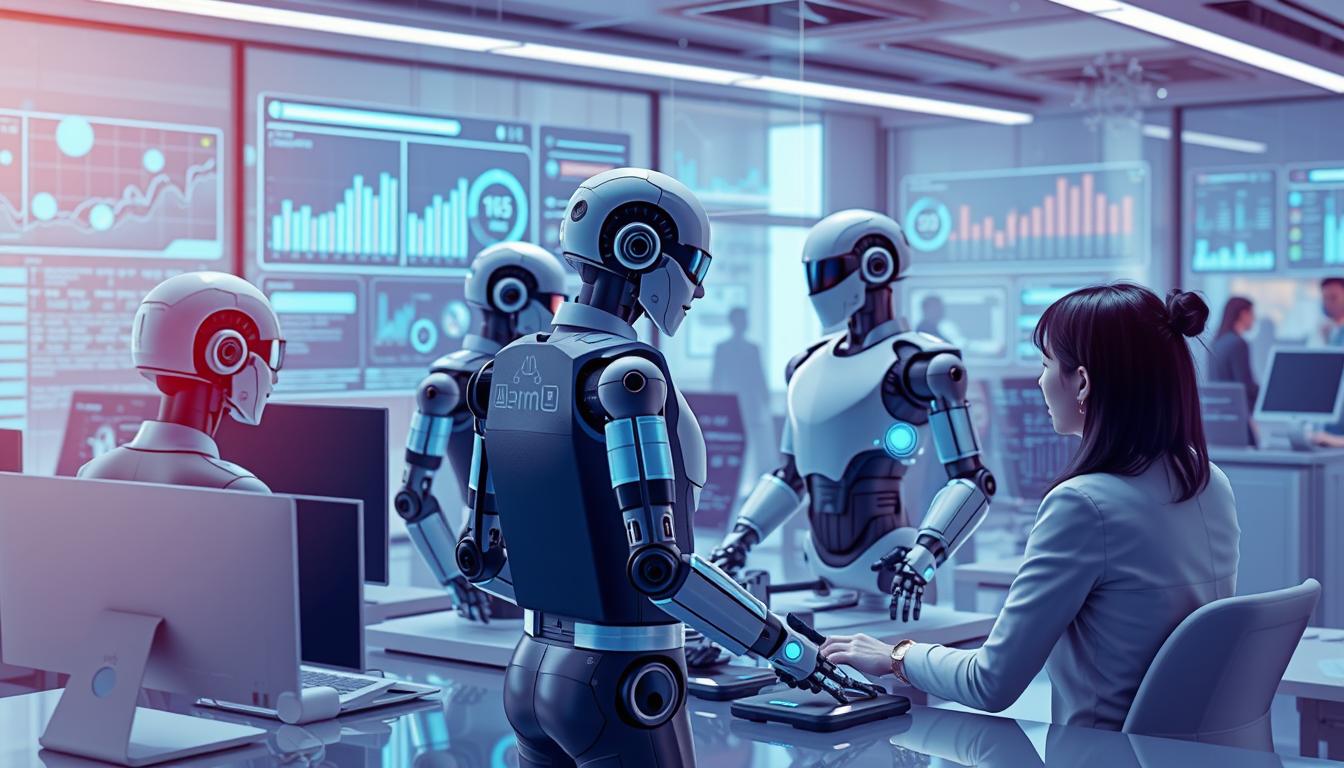


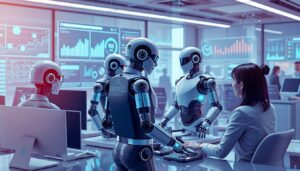

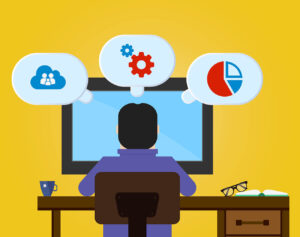
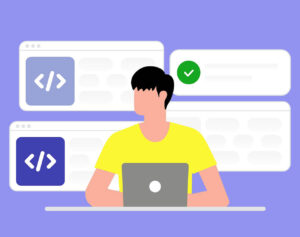



Post Comment